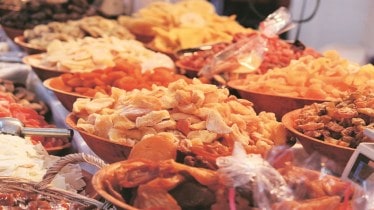For as long as we can remember, three meals a day were the norm—breakfast in the morning, lunch during the day, and dinner at night. Simple. Then, suddenly, people started vouching for smaller but frequent meals. When we hadn’t even wrapped our head around this, intermittent fasting suddenly became a rage, where meal timing mattered more than anything. X’s former CEO Jack Dorsey even went on to say, in an earlier interview with a media house, that he has one meal a day—just dinner.
Evidently, there is no one-size-fits-all. Everyone’s body is different and so is the health goal. However, the confusion needs to be addressed.
Experts weigh in
While some vouch for smaller frequent meals, others for larger fewer meals; studies, interestingly, have found no difference between the two when it comes to metabolic rate and fat loss. Hence, whether you eat three meals of 800 calories each, or six meals of 400 calories, there is hardly any difference.
Most experts FE spoke with recommended eating five times a day, consisting of three larger meals (breakfast, lunch and dinner), and two smaller ones (mid-morning and evening). “These should be taken in an interval of two to three hours,” says Deepti Khatuja, head—clinical nutritionist at Fortis Memorial Research Institute, Gurugram. At mid-day and evening, “you can have fruits and healthy snacks like nuts, seeds, sprouts, etc,” says Ritika Samaddar, regional head—south zone, dietetics, nutrition and dietetics, Max Super Speciality Hospital, Saket. She especially encourages diabetics to “have five to six meals distributed throughout the day to avoid the peaks and the lows in blood sugar levels.”
A 2019 study, which compared eating less than three meals and more than four, found that the latter increased HDL (high-density lipoprotein) cholesterol and lowered fasting triglycerides more effectively. Notably, higher HDL levels are linked to a reduced risk of heart disease.
Some other benefits of smaller, frequent meals include:
* It causes satiety, which prevents overeating, which, in turn, can also help with weight loss.
* It helps prevent acidity and gastritis.
* Including high-protein snacks helps with attaining protein requirements, which increases muscle mass and aids muscle-building.
* In general, it helps incorporate all food groups into one diet plan, which prevents nutritional deficiencies.
Most important meal?
Intermittent fasting requires one to eat in a specific narrow window. Generally, it spans just eight hours, followed by 16 hours of fasting. Many often end up skipping breakfast. While this is one scenario, some just cannot have breakfast, or a heavy meal in the morning. A conundrum, since breakfast is generally said to be the most important meal of the day. ‘Eat breakfast like a king, lunch like a prince, and dinner like a pauper,’ as the saying goes.
“When we wake up, the blood sugar levels are already low due to the overnight fast. So, just like a car’s engine needs fuel, the body needs breakfast to kickstart metabolism,” says Samaddar. Also, “If you continue to stay hungry even after the overnight fast, the body goes into stress mode and releases the hormone cortisol. If we miss breakfast for prolonged periods, and cortisol levels stay unchecked, it can affect thyroid functioning,” she explains. Some long-term effects include “lethargy, fatigue, lack of concentration, and forgetfulness”.
So, what comprises a healthy and hearty breakfast? “Ideally, it should be a combination of carbohydrates, healthy fats, and proteins in the form of milk cereals such as oatmeal with added nuts and seeds, eggs or omelette and whole wheat toast, boiled chana chaat, dal ka chilla, fruit smoothies with seeds and nuts, etc,” recommends Prachi Jain, chief clinical nutritionist and HOD (nutrition and dietetics), CK Birla Hospital, Gurugram.
Some might skip the first meal to manage weight. However, observational studies have shown that those who skip breakfast are more likely to be obese. However, the opposite, too, might not be true. Studies haven’t shown if having breakfast helps to lose weight.
Having said that, there are those who cannot eat cooked food in the morning “because that is how they have grown up. So a mid-morning brunch can be ideal. In such a case, it is better to opt for what suits you,” says Sreemathy Venkatraman, a wellness nutritionist, clinical dietician and founder of Mitha Ahara: Eat to Live.
3 major, 2 minor meals
The three major meals help with a balanced diet and should include cereals, pulses, vegetables, salads and milk products such as curd/buttermilk/milk.
The two minor meals act as healthy fillers, preventing binge eating. These can include:
* Evening snacks: Roasted chana, roasted makhana, sweet potato chaat, dhokla, baked veggie cutlets, steamed sweetcorn, etc
* Mid-morning: snack Seasonal fruits, sprouts, mint lemonade, buttermilk, sattu drink. In winter, one can have homemade soups, etc
* You can also have dried fruits, nuts such as almonds, walnuts, figs, etc
* Also, you can start your day with a drink, which can be plain lukewarm water, coconut water or lemon honey water, instead of tea or coffee
